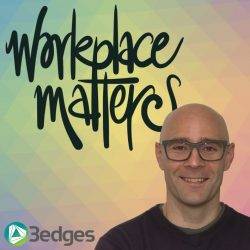July 5, 2017
Minimum wage should be extended to the self employed and gig economy 0
 The government should extend minimum wage legislation to protect some of the UK’s 4.8 million self employed workforce as part of its drive to tackle low pay and insecurity in the modern workforce, according to a new report published by the Resolution Foundation. The Minimum Required? – which forms part of the Resolution Foundation’s submission to the Taylor Review on modern employment practices – sets out a number of proposals to tackle endemic levels of low pay among the self-employed. Its new analysis claims that that while around in one in five employees are low-paid (earning less than two-thirds of typical weekly earnings), last year around half of the full-time self-employed workforce (49 percent) fell below this threshold, earning less than £310 a week.
The government should extend minimum wage legislation to protect some of the UK’s 4.8 million self employed workforce as part of its drive to tackle low pay and insecurity in the modern workforce, according to a new report published by the Resolution Foundation. The Minimum Required? – which forms part of the Resolution Foundation’s submission to the Taylor Review on modern employment practices – sets out a number of proposals to tackle endemic levels of low pay among the self-employed. Its new analysis claims that that while around in one in five employees are low-paid (earning less than two-thirds of typical weekly earnings), last year around half of the full-time self-employed workforce (49 percent) fell below this threshold, earning less than £310 a week.









 Nearly three quarters (70 percent) of employers say it’s healthy for employees to have someone to confide in at work, according to new research, but it claims, 1 in 4 employees would consider leaving the company if their friend left. The totaljobs research which featured responses from over 4,000 employees and 103 employers on the latest trends in workplace relationships and office politics found that two thirds (65 percent) of UK workers are finding ‘work spouses’ in the office – that one person who they are very close. Although over half of employers (56 percent) say strong work friendships increase productivity and 60 percent of work spouses say their relationship means ‘they look forward to going into work’, which can help improve staff retention, 1 in 4 (23 percent) say if their friend left, they would consider leaving themselves. Nearly one in 10 (7 percent) go as far as to say that their work spouse leaving the company would be ‘like a bereavement’.
Nearly three quarters (70 percent) of employers say it’s healthy for employees to have someone to confide in at work, according to new research, but it claims, 1 in 4 employees would consider leaving the company if their friend left. The totaljobs research which featured responses from over 4,000 employees and 103 employers on the latest trends in workplace relationships and office politics found that two thirds (65 percent) of UK workers are finding ‘work spouses’ in the office – that one person who they are very close. Although over half of employers (56 percent) say strong work friendships increase productivity and 60 percent of work spouses say their relationship means ‘they look forward to going into work’, which can help improve staff retention, 1 in 4 (23 percent) say if their friend left, they would consider leaving themselves. Nearly one in 10 (7 percent) go as far as to say that their work spouse leaving the company would be ‘like a bereavement’.






















June 30, 2017
Why using recyclable materials is no longer enough to protect the environment 0
by Michael Tyerman • Comment, Environment, Workplace design
(more…)